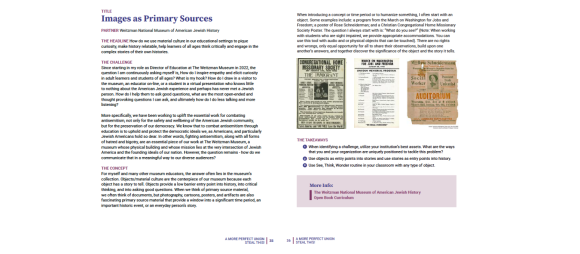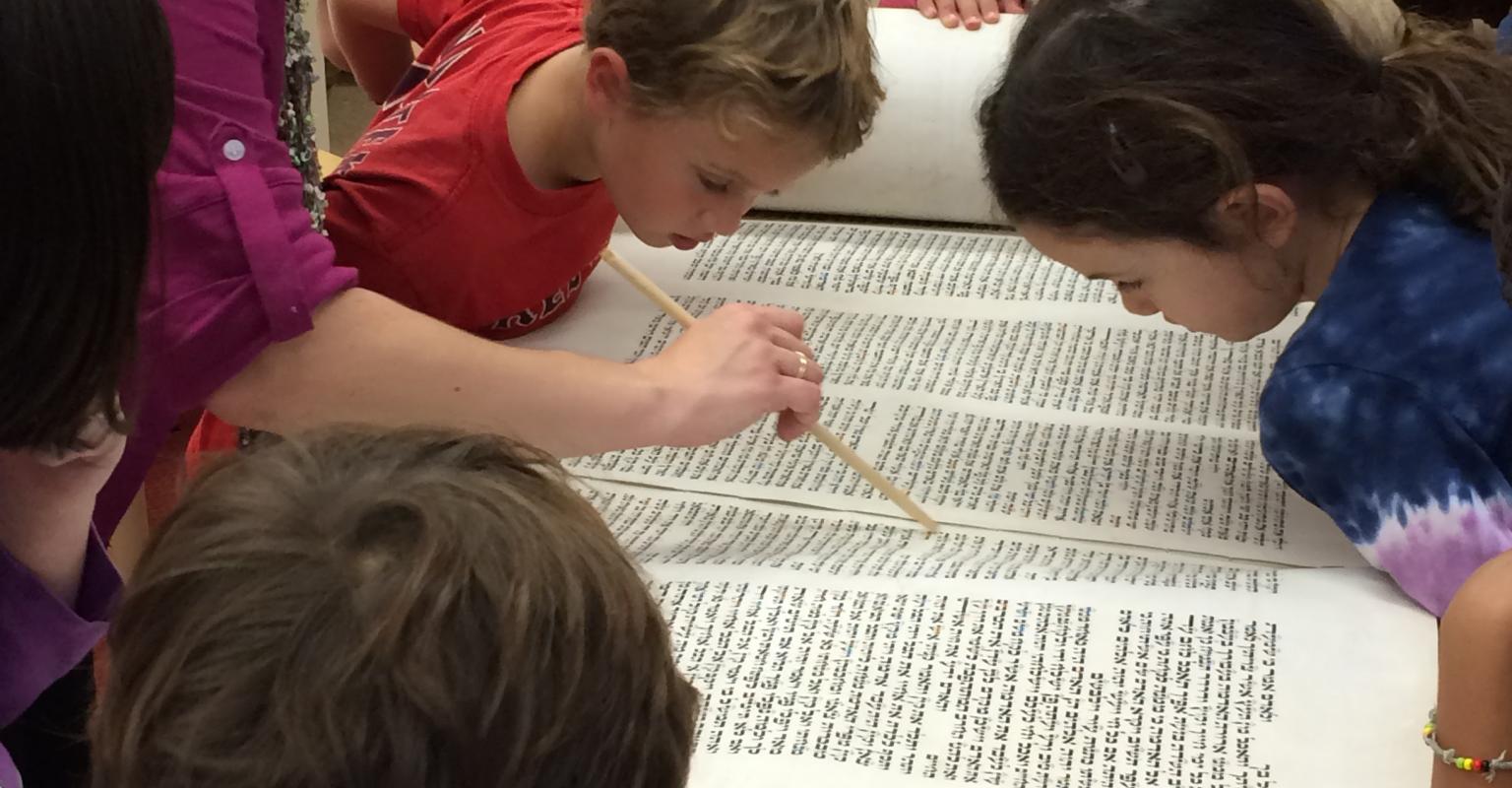Steal This! Innovative Ideas and Approaches to Civic Learning in Jewish Spaces
At A More Perfect Union: The Jewish Partnership for Democracy, we know that a strong and robust democracy is essential to a thriving Jewish community in the United States.
But what does a strong and robust democracy look like? Among other things, it includes an educated and engaged populace, prepared with the knowledge, skills, and dispositions to be well-informed and hopeful participants in civic and democratic life. We call this “civic learning.”

In this spirit, and with gratitude to our remarkable partners , we’ve put together this booklet of “Steal This!” concepts. The goals behind “Steal This!” are simple: to ignite a spark of creativity and passion for civic learning within Jewish spaces and to foster connections among our partners
Inside this booklet, you’ll find a treasure trove of ideas and approaches, all shared by diverse Jewish partners within our growing network. Whether you’re a synagogue, a community center, an advocacy organization, a summer camp, a social service agency, or any kind of organization supporting the Jewish community, there’s something in this booklet for everyone. And while each concept is unique to its origins, every one is designed to be adaptable to a wide range of contexts and challenges. We hope these ideas empower and inspire you to embrace civic learning in your own Jewish spaces.
- Politics
- Pluralism
- Civic Education
- Belonging
- Jewish History
- Not Grade Specific
- After School Programming
- Educator Training
- Camp
- Congregational Learning
- Day Schools and Yeshivas
- Teen Engagement
Discover more

Non-partisan resources to aid in discussion and programming around civic engagement.

Resources for talking with children and teens about immigration, protest, and communal responsibility.

Mayim, our initial example of "Additional" Models, could be placed in a Multi-aged, Project-Based Learning, or Experiential Learning bucket. Mayim is a K-5 learning community in which depth of relationships and depth of learning are intentionally fostered and visible everywhere.
